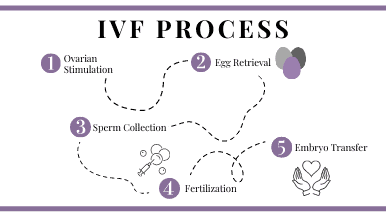An IVF (In Vitro Fertilization) cycle is a complex and carefully timed process that typically spans about 4-6 weeks, although the exact duration can vary based on individual circumstances and treatment protocols. Understanding the timeline of an IVF cycle can help prospective parents prepare for the journey ahead.
Initial Consultation and Testing
Before the IVF cycle begins, there is an initial consultation with a fertility specialist, which includes a series of diagnostic tests and evaluations for both partners. This phase can take several weeks as it involves gathering medical history, conducting blood tests, ultrasounds, and sometimes genetic screening.
Ovarian Stimulation (10-14 Days)
The IVF cycle officially starts with ovarian stimulation. For about 10-14 days, the woman takes hormone injections to stimulate the ovaries to produce multiple eggs. During this period, she will have frequent monitoring through blood tests and ultrasounds to track the development of the follicles (egg sacs).
Egg Retrieval (Day 14-16)
Once the follicles are mature, a trigger shot of hCG (human chorionic gonadotropin) is administered to finalize the egg maturation process. Approximately 36 hours after the trigger shot, egg retrieval is performed. This is a minor surgical procedure, typically done under sedation, where a needle is used to extract eggs from the ovaries.
Fertilization and Embryo Culture (3-5 Days)
The retrieved eggs are then fertilized with sperm in the laboratory. This can be done using conventional IVF or Intracytoplasmic Sperm Injection (ICSI), where a single sperm is injected directly into the egg. The fertilized eggs (now embryos) are cultured for 3-5 days. During this time, they are monitored for development.
Embryo Transfer (Day 19-21)
If the embryos develop successfully, one or more are selected for transfer to the woman's uterus. This procedure is quick and typically painless, similar to a Pap smear. If there are additional healthy embryos, they may be frozen for future use.
Luteal Phase Support and Pregnancy Test (10-14 Days)
After the embryo transfer, the woman will receive progesterone supplements to support the uterine lining and help the embryo implant. Approximately 10-14 days after the embryo transfer, a blood test is conducted to check for pregnancy by measuring the levels of hCG.




.png)

Comments